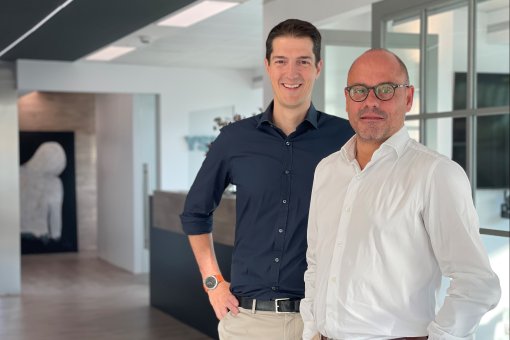Images
Contact

The IRB Barcelona programme is aimed at students in the fourth year of their degree and is launched offering four fellowships.
The students selected will work on a research project for seven months under the supervision of a group leader.
Tens of students, from secondary school to university level, pass through IRB Barcelona each year to train in biomedicine.
At the end of February, the Institute for Research in Biomedicine (IRB Barcelona) is launching a new programme entitled “A Future in Biomedicine”, aimed at students in the fourth year of their degrees. The aim of this initiative is to offer them the opportunity to get to know about scientific research settings before finishing their studies.
This first call offers four fellowships, lasting from February to September 2015, which will be given to outstanding students in the following degree courses: biology, biomedicine, chemistry, physics, computational sciences, and other related fields. The deadline for applications is Monday 2 February 2015.
Those selected will work on a research project under the supervision of a senior scientist in a lab at IRB Barcelona. In addition, the students will have access to the internal training opportunities offered to the scientific community of the institute.
“A Future in Biomedicine” has come about from the commitment of IRB Barcelona to train young people who are highly motivated to pursue science. Joan J. Guinovart, director of IRB Barcelona explains, “our educational system is not designed to fulfil the needs of a minority of highly motivated students. Research centres can cover this gap by providing exclusive programmes that can develop the full potential of these individuals”.
With the same spirit as the “Crazy About Biomedicine” programme
The programme for university students has been launched with the same spirit as the successful “Crazy About Biomedicine” course, which was directed at 16- and 17-year-old baccalaureate students. This January IRB Barcelona has started its third edition of this year-long activity, which is held in English. Over 18 Saturdays throughout the year, 24 students learn about the theory and techniques used by biomedical research labs.
“They are girls and boys with an incredible hunger to learn, the kind of student any teacher would wish for,” comments Guinovart in reference to the 72 participants who have joined IRB Barcelona’s “Crazy Club”. In fact, the large number of pre-enrolments and the development of the first programme in 2013 led the Catalunya-La Pedrera Foundation, an organisation that supports the activity, to extend the concept to research centres in Catalonia. The umbrella of “Crazy About Science” currently offers 7 programmes addressing diverse scientific disciplines in eight research centres throughout Catalonia.
Training in collaboration with others
IRB Barcelona also collaborates in activities run by other organisations, such as the Barcelona Science Park (PCB), the Catalunya-La Pedrera Foundation, the University of Barcelona, and the Polytechnic University of Catalonia (UPC), in a wide range of training activities for students of all ages.
More information about Public Engagement at IRB Barcelona
About IRB Barcelona
The Institute for Research in Biomedicine (IRB Barcelona) pursues a society free of disease. To this end, it conducts multidisciplinary research of excellence to cure cancer and other diseases linked to ageing. It establishes technology transfer agreements with the pharmaceutical industry and major hospitals to bring research results closer to society, and organises a range of science outreach activities to engage the public in an open dialogue. IRB Barcelona is an international centre that hosts 400 researchers and more than 30 nationalities. Recognised as a Severo Ochoa Centre of Excellence since 2011, IRB Barcelona is a CERCA centre and member of the Barcelona Institute of Science and Technology (BIST).




